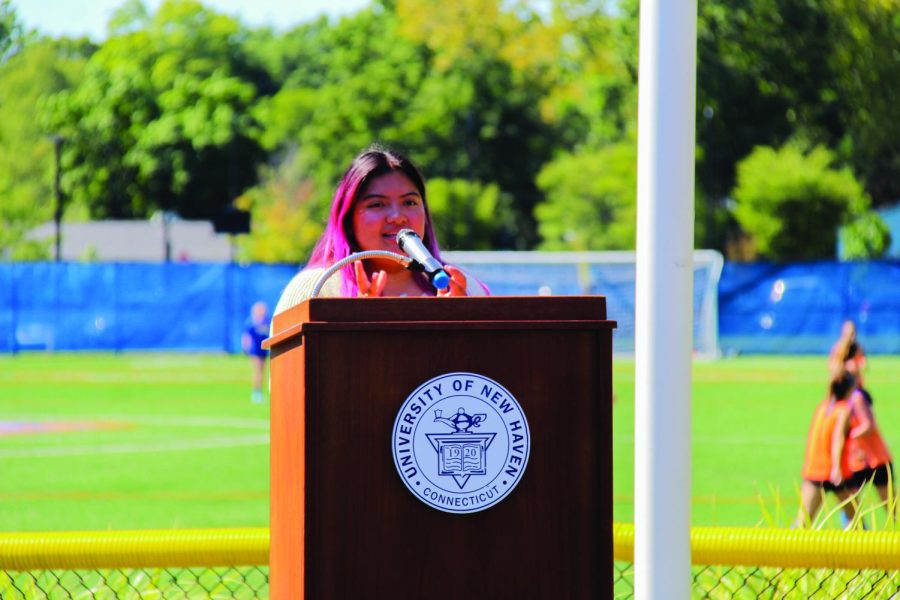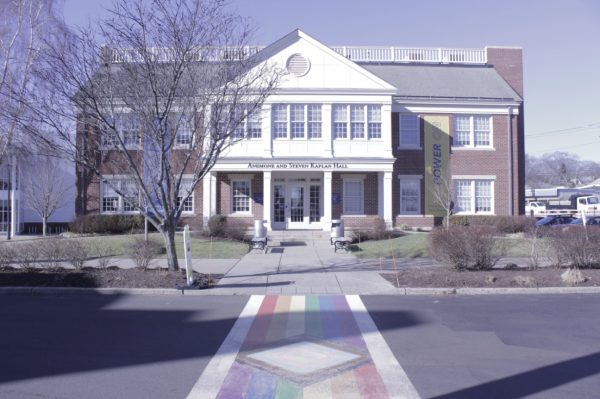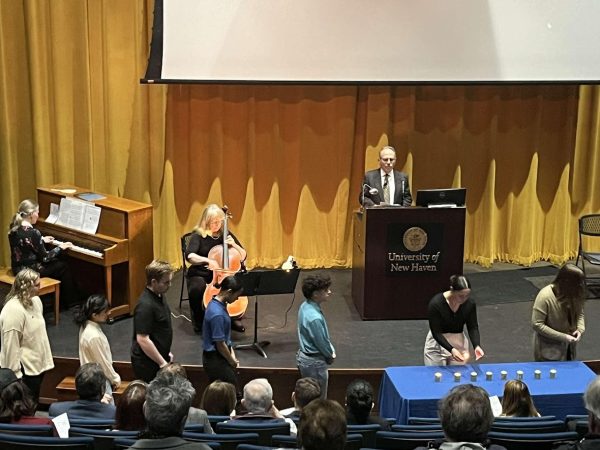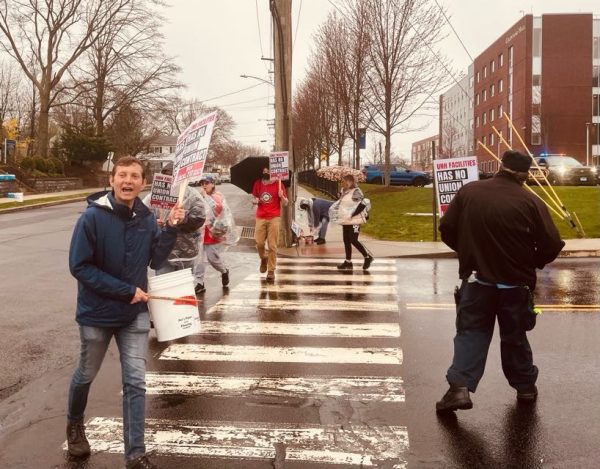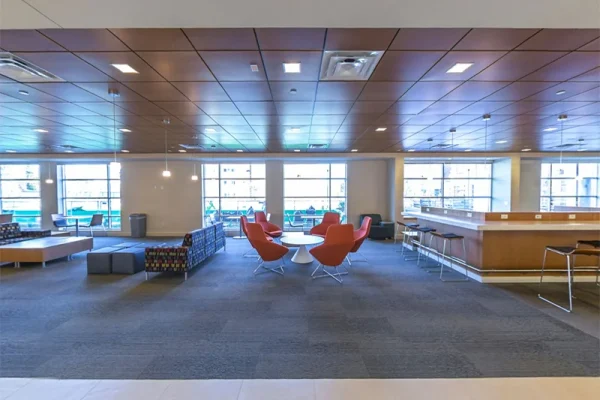Flag raising marks the start of Hispanic Heritage Month
Photo courtesy of Charger Bulletin/Erick Cuatzo
Brisa Velazquez speaks at the Hispanic Heritage Month Flag Raising Ceremony, West Haven, Sept. 15, 2022.
On Sept. 15, Brisa Velazquez, the USGA senator for Hispanic and Latine students, stood in front of the crowd gathered at the German Club to commence the first flag raising in recognition of the Latine community at the University of New Haven.
Under the American flag, a flag designed personally for the university that displays a collage of Hispanic/Latine countries now flies in honor of Hispanic Heritage Month, which will conclude on Oct. 15.
On Sept. 15, five Latin American countries celebrate their independence day every year: Costa Rica, El Salvadore, Guatemala, Honduras and Nicaragua. This is why, as explained by Latin American Student Association (LASA) Vice President Kimbery Martinez, the timeline of Hispanic Heritage Month looks “a little bit odd in comparison to other months celebrating marginalized groups.”
Dean Ophelie Rowe-Allen spoke on behalf of the new assistant director of the Myatt Center, Jennfier Thorndike-Gonzales, who was unable to attend.
She said to “remember, honor and praise the legacy and impact of all Hispanic, Latino, Latine, Afro-Latino, Indiginous and other communities in the United States and around the world” during this month.
Many speakers throughout the morning’s ceremony recapped the historical progression of how Hispanic Heritage Month came to be. In 1968, Hispanic Heritage Week was made a national observance by President Lyndon B. Johnson. It was not until 1988 that Congress sponsored a bill that extended the holiday to a month.
Rowe-Allen continued to speak on how the strong cultural backgrounds of Hispanic and Latine subgroups are an integral part of the increased diversity in this county, “making it more diverse, beautiful and culturally richer.”
In regards to these cultural groups represented on campus, she said that “they are a fundamental part of the Charger family.”
Emphasis was placed on the value of creating safe, welcoming, inclusive spaces for people of all backgrounds on campus. “We will continue to ensure that we create spaces that foster healthy, dynamic, formal and informal interactions between and among all community groups.”
During the flag-raising ceremony, multiple representatives from LASA took to the podium to reflect on the value of this heritage month.
President Leo Levine-Aquino and Vice President Kimberly Martinez both spoke anecdotally on the values of culture both in developmental stages of life and being surrounded by it in the college setting. “It can be really lonely in a PWI (predominantly white institution). Sometimes it just feels really nice just being around people who look like you,” said Martinez.
Levine-Aquino spoke on his experience of being adopted from Guatemala, and growing up not being exposed to his cultural roots, saying “I knew nothing about where I was from, I didn’t know spanish and for many transnational and transracial adoptees like myself, growing up without the community is a main struggle.”
He then spoke in gratitude of finding that community and discovering his ties to his culture after joining LASA at the university. “The Latin community is, has and will always be here,” Levine-Aquino said in highlighting the power of multicultural organizations on campus.
Martinez told stories about the presence of culture in her home that resonated with her to this day, displaying the power behind being raised Hispanic.
Following the ceremony, Velazquez reflected on the ceremony, and the efforts being made towards gaining traction during Hispanic Heritage Month on the whole.
She said that the idea had been developing since last semester, when she accepted her USGA Senate position and saw Saniyah Brinney, current president, organize a flag raising through the Black Student Union for Black History Month. Velazquez said that she wanted to give something similar to the Hispanic community, and it took collaboration between a number of the multicultural organizations on campus.
Velazquez emphasized her aims to make this a new university tradition, and her drive to continue to take charge during her time as senator in future years.
“I hope to promote the month more,” Velazquez said about future celebrations. “More students should come, even if you’re not Hispanic or identify as Latine, you can always come; we support everyone.”
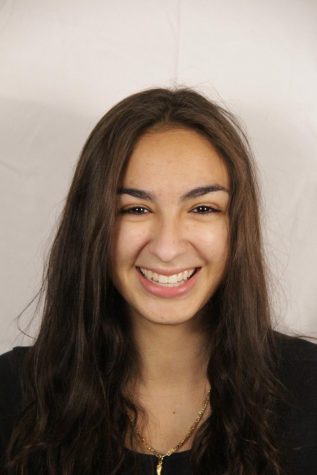
Mia Adduci is a senior studying communication concentrating in multi-platform journalism and media who began writing for the paper her first semester on...

